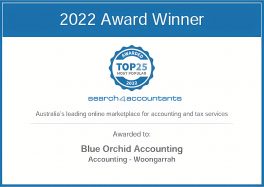“Excepted income” of minors is taxed at ordinary rates and is excluded from the high marginal tax rates which would otherwise apply. A minor is an individual who is under the age of 18 at the end of the financial year.
Income which is not excepted income is subject to the reduced tax-free threshold, therefore mostly being taxed at the highest marginal tax rate, and from 2011-12 this income does not benefit from the low income tax offset.
Excepted Persons
Minors may be shielded from the application of the higher-taxing rules in a tax year if they were an “excepted person”. An excepted person pays tax at ordinary rates on all of their income.
A minor is an “excepted person” for the financial year if they were:
- working full-time, or had worked full-time for three months or more in the income year (ignoring full-time work that was followed by full-time study), and for most or all of the following year intending to work full-time and not intending to study full-time
- entitled to a disability support pension or rehabilitation allowance, or someone was entitled to a carer allowance to care for them
- permanently blind
- disabled and likely to suffer from that disability permanently or for an extended period
- entitled to a double orphan pension and received little or no financial support from relatives, or
- unable to work full-time because of a permanent mental or physical disability and received little or no financial support from relatives.
Excepted Income
A minor who is not an excepted person will nevertheless only pay tax at the lower ordinary tax rates on that part of their income which is “excepted income” (s102AE(2)).Their other income (which is termed “eligible income”) is taxed at the higher minors’ tax rates.
Excepted income includes income from personal exertion – for example wages a?yola-link-is-coming=true?yola-link-is-coming=truend salary – as well as a number of other specifically included income categories. To be “excepted” the wages or business income must be paid at an “arms length” rate – i.e. the rate which would be paid by someone not related to or associated with the minor.
Excepted Income of Minors includes income and investment proceeds of the following:
- reasonable wages or income from services, including business and partnership income
- taxable pensions or other income such as AUSTUDY paid by Centrelink or the Department of Veterans Affairs which is subject to the PAYG tax withholding requirements
- income from a deceased estate
- income from testamentary trusts
- investment income from investments (including via a trust) from:
- a public poverty relief fund
- winnings from an authorised lottery
- compensation proceeds, including an out-of-court settlement
- superannuation and life assurance proceeds
- child support proceeds following a family breakdown
- investment income from assets equivalent to an intestate value transferred from a deceased estate beneficiary within 3 years of death
- investment income from assets acquired through a family breakdown property settlement(s102AGA)
- income from investment of any of the above
This is generalised information which should not form the basis of a course of action without professional advice which is specific to your circumstances.













